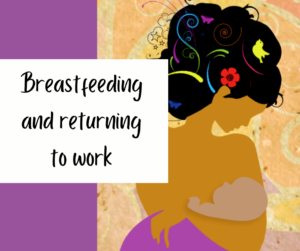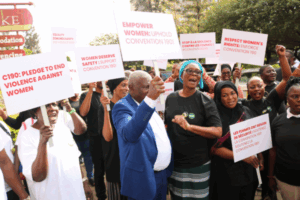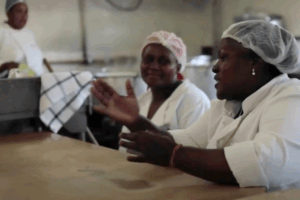Over fifty years ago, most children were cared for at home by their mothers. Since then, more women (and as such, mothers) have entered the workforce for a variety of reasons including the fact that a single income was no longer enough to sustain a household (Baker, 1997:51). Women have since started to play an integral part in functioning economies around the world. In South Africa, women account for 43.8% of total employment (STATSSA, 2018). This has understandably left a gaping hole where childcare is concerned.
The ILO’s C183 Maternity Protection Convention addresses this gap. It specifically lists a minimum of 14 weeks of maternity leave and several articles protecting the health and benefits of the mother. However, in Africa, only three countries (Benin, Mali and Morocco) have ratified this convention. To ratify this convention, a country must meet the leave requirement of 14 weeks. 20% of countries in Africa do not meet this requirement. Parental leave is not included in any of the ILO Conventions.
Some countries have taken further measures to ensure adequate parental leave (that is, leave for both parents): Sweden offers 480 days of paid leave at 80% pay; Germany offers 367 days at 66% pay; France offers 6 months for each parent with financial compensation.
I recently returned from my maternity leave, and this has left me with some questions about what it means to be a mother in the workplace. The debates about parental leave are far more nuanced than I could include in a piece like this, but I find myself considering the implication of parental leave policies with renewed vigour. For this piece, I referred back to the LRS’s ‘Bargaining for Gender Equity’ booklet with a fresh perspective. Across the board, both women and men report that the biggest barrier for women in paid work is the struggle to balance it with family responsibilities. I’m experiencing this barrier myself. Many women and men lack access to adequate maternity protection, paid paternity and parental leave and other basic social protection measures.
I consider myself lucky to have been given six months to care for my baby while still being paid my full salary and be sure that my job is waiting for me when I return. Many in South Africa are not that lucky – with the mandatory state maternity leave being four consecutive months, with no guarantee of salary and a reliance on the Unemployment Insurance Fund (UIF) maternity benefits that are admin heavy and (anecdotally; here and here) hard to come by, and often delayed. New legislation in South Africa that came into effect in January 2020 means that parents (including fathers, adopting parents and surrogates) are entitled to 10 days of unpaid leave when their children are born. Employees taking this leave are entitled to some compensation from the UIF.
My husband works for himself and was only able to take ten days’ leave to spend with his newborn baby and newly postpartum wife. Aside from his savings, there was no fallback for him to spend more time with us. The implication here that paternity leave is ‘unimportant’ is dangerous. This ‘suggests fathers are not an integral part of the childcare unit and perpetuates the antiquated belief that mothers alone should be the primary caregivers.’
We are still conditioned to believe that women are better than men at caring for a baby. The research, however, shows that ‘gender doesn’t matter’ when caring for infants. Not seeing fathers (or other co-parents) as important in the early stages of life has led to policy decisions like the above, with little to no time granted to men to bond with their children. Everyone in the family benefits when fathers are more involved – there is less likelihood of postpartum depression and anxiety (in both parents); and children of highly involved fathers tend to have higher IQs, better at emotional regulation and are more independent.
It is commonly accepted that women are, on average, paid less than men. Usually, when a woman goes on maternity leave, her salary is reduced in some way. Some may argue that companies control this variable when hiring women by starting women on lower salaries. More recent research has shown that the gender pay gap is more specific than between men and women – It’s between men and women who have children. This is often referred to as the ‘motherhood penalty.’ Some research has even found that offering leave to fathers helps to close the gender wage gap:
When men take leave, women are not only more likely to return to work, but earn more. One study in Sweden found that every month a father stays on paid parental leave has a larger positive effect on a mother’s earnings than if she’d reduced her leave by the same amount.
'The effect of own and spousal parental leave on earnings': Institute for Labour Market Policy Evaluation
In my own experience, I did not feel like I had enough time with my baby. My husband feels the same way. Not all parents want this, but the matter of choice is missing. There are few social protections in place that would have allowed either of us more time at home with our first child. However, in a country with such a high unemployment rate and an extremely high rate of low-skilled jobs, the likelihood of increased social protection seems low. Some companies have taken a step up here where countries lack. At Twitter, for example, all new parents qualify for 20 weeks of paid time off; at Fidelity Investments, 16 weeks of paid maternity leave and 12 weeks of leave for non-birth parents. Where countries lack, companies have the option to step up and create better conditions for parents.
Another concern for mothers in the workplace is breastfeeding. I have chosen to exclusively breastfeed my baby – but along with this choice now comes a fear of being apart from her, of not being able to continue to do so as I enter back into the workspace. I work flexibly, but the reality is that I will be spending more time away from my daughter, which could mean stopping breastfeeding earlier than I would like to.
I fear that my child will resent me working, and that I am being replaced by her caretaker. I fear going away from her for more than a few hours. I fear being left behind in my career progression. I have become aware that so many other mothers struggle with this dichotomy as well – wanting to be a present caregiver and at the same time wanting to earn a salary and be a good employee.
In South Africa, there is a lot left to be desired in terms of social protection for parents. I hope that unions will continue to support workers during the difficult transition to parenthood, encouraging and demanding that employers and government provide adequate protections during this vulnerable time for parents.
Bibliography
Baker, M. 1997. Parental Benefit Policies and the Gendered Division of Labour. Social Service Review Vol 71 (1), 51-71.
Dr Teuteberg is the Project Leader of the Transforming Corporate Governance programme of the Labour Research Service.
You might like:
“All parents of whatever stripe”: LRS as amicus curiae in a landmark equal parental leave rights case
Breastfeeding in the workplace
This booklet highlights the experiences of young working mothers and ways we can protect the right to breastfeed in the workplace.








